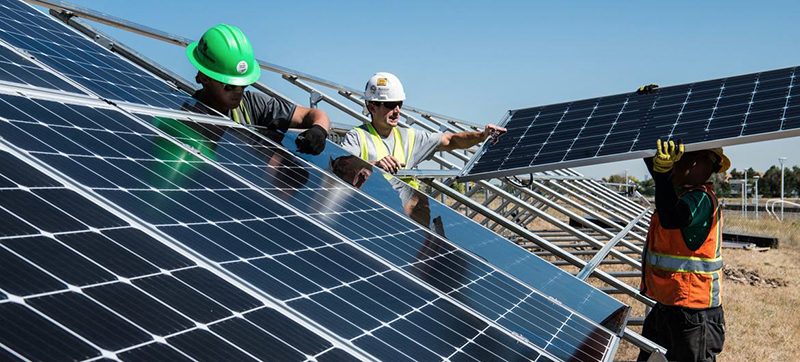 Global EnergyCrisis
Global EnergyCrisis
UN chief slams ‘immoral’ profiteering amid global energy crisis
New York: As the war in Ukraine continues to rage, skyrocketing energy prices are compounding an existential cost-of-living crisis for hundreds of millions of people, the UN chief said on Wednesday, introducing the third is a series of briefings from the Global Crisis Response Group (GCRG) on Food, Energy and Finance.
Secretary-General António Guterres said it was “immoral” that major oil and gas companies are reporting “record profits”, while prices soar.
“The combined profits of the largest energy companies in the first quarter of this year are close to $100 billion,” he said, urging governments to “tax these excessive profits, and use the funds raised to support the most vulnerable people through these difficult times”.
Funding green energy
The brief from the GCRG – set up by the UN chief in the wake of Russia’s invasion of Ukraine – recommends that governments find effective funding for energy solutions, such as publicly financed cash transfers and rebate policies to protect vulnerable communities, including windfall taxes on the largest oil and gas companies, while also advocating for a transition to more cost-effective renewables.
It notes however, that rising energy costs may price out developing countries, especially the most vulnerable communities, from energy markets.
Since the COVID-19 pandemic, the countries that are already bearing the brunt of the cost-of-living crisis, continue to experience major difficulties accessing affordable energy.
‘Workable options’ lacking
More worryingly is a potential “scramble for fuel” whereby only rich countries can afford to access energy as prices continue climbing, the GCRG brief warns.
“Governments need the fiscal space to support their most vulnerable populations to avoid worsening levels of energy poverty or losing energy access altogether.
“Developing countries don’t lack reasons to invest in renewables. Many of them are living with the severe impacts of the climate crisis including storms, floods and droughts,” said Mr. Guterres.
“What they lack are concrete, workable options”.
Switch to renewables
The brief comes on the heels of the landmark Black Sea Grain Initiative agreement between the UN, Russia, Türkiye and Ukraine, to allow the commercial shipment of grain to world markets, from Ukraine’s Black Sea ports.
And it makes clear that the Ukraine war and global energy crisis that it has caused, is a stark reminder that energy resilience and a stronger push for a renewable energy transition is needed.
However, as outlined by the Secretary-General, policies must be in place and readily available that include social protection measures for those affected by the transition and materials to support renewables.
The brief stresses that short-term policies and protection measures be used to mitigate the crisis, while in the medium-to-long-term, renewable energy should be championed to meet net zero goals, tackle energy poverty, boost and diversify the global energy mix.
But this requires a significant increase in global investment.
“We have to scale up financing and technology transfer for the developing countries and the energy poor of the world,” said Rebeca Grynspan, Secretary-General of the UN Conference on Trade and Development (UNCTAD) and GCRG brief coordinator.
Opportunities abound
The brief upholds that by 2030, an ambitious renewable energy transition could create an additional 85 million jobs in the renewables and other energy transition-related sectors.
And renewable energy production is often the lowest cost option, with the shortest installation time thanks to current technological development, and provides countries with energy security, while also reducing future exposure to volatile fossil fuel prices.
“Renewable energy is often the cheapest, and most quick to deploy source of electricity for many countries,” said Ms. Grynspan.
“But this is only true if we ensure that supply chains work well and without bottlenecks; that the workforce has the right skills and that enough funds will be made available for the initial investments”.
Support Our Journalism
We cannot do without you.. your contribution supports unbiased journalism
IBNS is not driven by any ism- not wokeism, not racism, not skewed secularism, not hyper right-wing or left liberal ideals, nor by any hardline religious beliefs or hyper nationalism. We want to serve you good old objective news, as they are. We do not judge or preach. We let people decide for themselves. We only try to present factual and well-sourced news.







